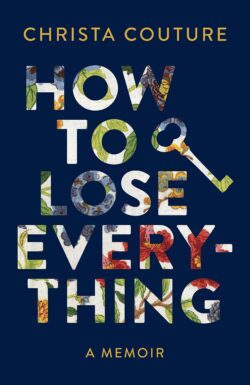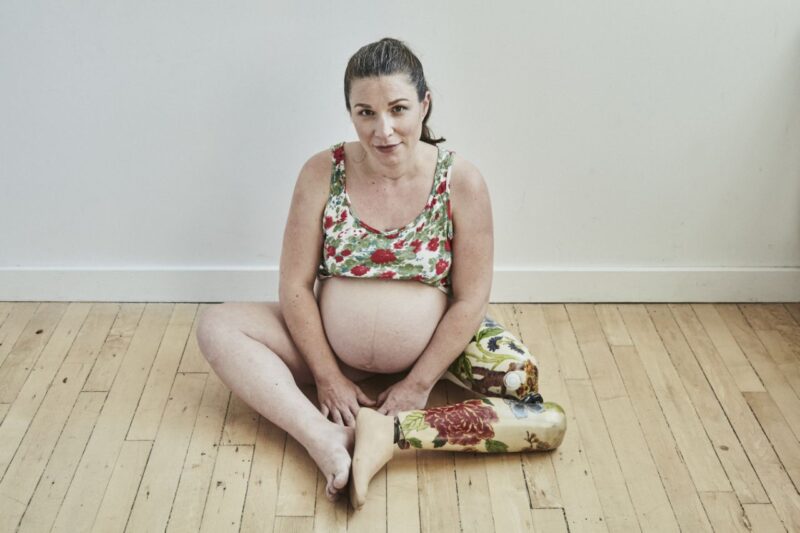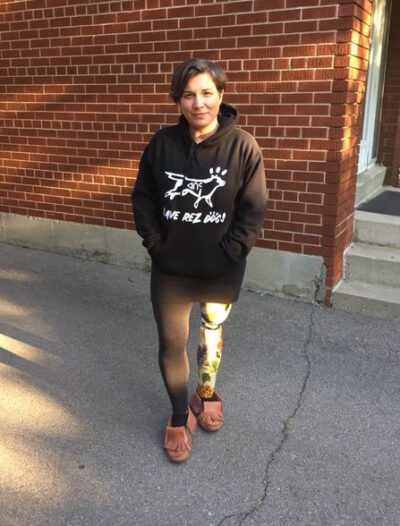1065 Don’t take it all for granted
How To Lose Everything: A Memoir
by Christa Couture
Madeira Park: Douglas & McIntyre, 2020
$26.95 / 9781771622622
Reviewed by David Milward
*
 Not making quite as much on a stock investment as you’d like; a rising interest rate puts a dent into your revenue; a repair becomes necessary with respect to your million-dollar home; your restaurant entrée was not to your satisfaction. Problems like these can seem like a big deal to those who experience them. But if these kinds of difficulties – often described as “First World Problems” — are truly the extent of a person’s dissatisfaction with life, they are also a reflection of privilege.
Not making quite as much on a stock investment as you’d like; a rising interest rate puts a dent into your revenue; a repair becomes necessary with respect to your million-dollar home; your restaurant entrée was not to your satisfaction. Problems like these can seem like a big deal to those who experience them. But if these kinds of difficulties – often described as “First World Problems” — are truly the extent of a person’s dissatisfaction with life, they are also a reflection of privilege.
The notion of “First World Problems” conveys the critique that those with lives of privilege often exhibit a myopic tendency to magnify the importance of their daily struggles to the point that they lose perspective. And that lost perspective can mean a lack of appreciation for how their struggles often pale in comparison to the far more pressing ordeals faced by people who do not enjoy the same level of privilege. “Third World Problems,” if you will, can include the constant fear of being caught in the crossfire of armed conflicts, life-threatening unsanitary conditions, malnutrition, and starvation. The critique embedded in the term “First World Problems” is that the privileged take for granted what is well beyond the reach of most other people in the world.

And indeed, many racialized people in First World countries are themselves living in situations that are not much of an improvement on the Third World. Issues faced by Black, Latino, and Indigenous communities across North America include poverty, micro-aggressions that avoid the politically correct disapproval of overt racism, and systemic racism that creates barriers for educational and job opportunities. The term “White Privilege” has thus gained real traction in recent years, as almost a natural stepchild of “Black Lives Matter.” The connection is a natural one, as many White persons take it for granted that they can go about their daily lives without an iota of police intervention so long as they stay within the law. That is a far cry from the daily stress and worry that besets many members of racial minorities who live with the constant spectre of inordinate police attention, whether or not there is any evidence to suggest they should be suspects of crime.
But sometimes life throws unexpected curveballs that few other people have to worry about. While people anywhere on the spectrum of class or race divisions may have varying sources of frustrations and dissatisfaction in their lives, they also take a lot of things for granted – things they might not appreciate until they are gone. Such is the nature of disabilities. Most of us, whatever other difficulties we may experience, take it for granted that our eyes can provide us with visual information about our surroundings, that we can use both legs to go from one place or another, and that we can use both hands in the performance of daily tasks. We may appreciate that disabilities can raise life challenges while we sympathize with disabled persons on an abstract level. But it is not until we actually do get hit with something like blindness or paraplegia that we truly understand what is involved.

The memoir How To Lose Everything, by mixed Cree and Scandinavian singer and songwriter Christa Couture, offers an insightful window into the nature of loss and struggle that comes with permanent physical disabilities. When she was 13, Couture faced the contrast between taking certain things for granted and experiencing the loss of them when she had one of her legs amputated due to bone cancer. She describes looking forward to playing with her friends, only for that possibility to get curtailed severely by the amputation. Feelings of inadequacy and “othering” were sure to follow.


Motherhood remains a key goal in life for many women, even allowing for feminist perspectives concerning freedom of choice in careers and family. It was an unimaginable source of agony for Couture when her cancer had repercussions for her reproductive capacity. Her first two attempts at giving birth were complicated by her previous cancer and other medical factors. The first saw the cresting hopes of raising a child crushed by the child’s death almost the instant it was born. The second resulted in her having to make the kind of choice that no mother should have to make: between letting the child pass away from the severe medical issues it was born with, or keeping the child alive – but in a state that could raise questions about whether it may have been more humane to prefer the former choice. It was with careful and yet agonized consideration that Couture made the former choice. A deteriorating relationship with an apathetic and abusive partner certainly did not help. And the feelings of “othering” emerged again as Couture often struggled with how to respond to questions of whether she has children, or how many children she has, or where they are now.

It is often the case that people who go through the most in life can channel their pain into phenomenal talents. And for Couture, that gift was her singing voice. Now try to imagine that even the one thing that gives you hope is taken away. This is what Couture experienced with thyroid cancer, an episode that had her asking the Creator why the one thing she could cling to should also be taken away. Luckily, she did survive with her singing voice intact. But again, it can be hard to truly understand the fear and agony that accompany that kind of ordeal. But Couture’s message is not all of traumatic personal experiences. She offers a lesson in how one can still live a good life by focusing on the gifts one has, on using them to help others, and on always honestly acknowledging what one has lost while not dwelling on them to the point of interfering with what one still has to offer.
I have done my best to convey the takeaways offered by this memoir. The process of obtaining them was not always an easy one, and this is not intended as a slight on Couture’s writing skill. Her style might be a challenge for some readers to follow, but there is a purpose underlying it. How To Lose Everything is not broken down and organized by section according to logical concepts in the way that academic treatises are — the kind of writing I am used to. Nor does it strictly follow the conventional chronological progression that a lot of biographies employ. Instead, it is written in a stream of consciousness kind of way. That is not to say that it wanders aimlessly without direction. I suspect the stream of consciousness style is deliberate. It is, after all, to be expected that emotions and reactions to trauma and life’s travails change from day to day, and from hour to hour. And that oscillation in response to one trial after another does indeed thread Couture’s text.
I can recommend How To Lose Everything to anyone, but with a mild buyer-beware label. Its often troubling content does not make for easy reading – but the book’s message can be rewarding as we reflect on our own abilities and health, as we keep our problems and advantages in perspective, and as we contemplate Couture’s moving life story.

*

David Milward is an Associate Professor of Law with the University of Victoria, and a member of the Beardy’s & Okemasis First Nation of Duck Lake, Saskatchewan. He assisted the Truth and Reconciliation Commission with the authoring of its final report on Indigenous justice issues, and is the author of Aboriginal Justice and the Charter: Realizing a Culturally Sensitive Interpretation of Legal Rights (UBC Press, 2013), which was joint winner of the K.D. Srivastava Prize for Excellence in Scholarly Publishing and was short-listed for Canadian Law & Society Association Book Prize, both for books published in 2013. David is also the author of numerous articles on Indigenous justice in leading national and international law journals. Editor’s note: David Milward has also reviewed books by Darryl Leroux, Bob Joseph with Cynthia F. Joseph, Elspeth Kaiser-Derrick, David B. MacDonald, and Darrel J. McLeod for The Ormsby Review.
*

The Ormsby Review. More Books. More Reviews. More Often.
Publisher and Editor: Richard Mackie
The Ormsby Review is a journal service for in-depth coverage of B.C. books and authors. The Advisory Board consists of Jean Barman, Wade Davis, Robin Fisher, Cole Harris, Hugh Johnston, Patricia Roy, David Stouck, Maria Tippett, and Graeme Wynn. Scholarly Patron: SFU Graduate Liberal Studies. Honorary Patron: Yosef Wosk. Provincial Government Patron since September 2018: Creative BC
“Only connect.” – E.M. Forster
One comment on “1065 Don’t take it all for granted”